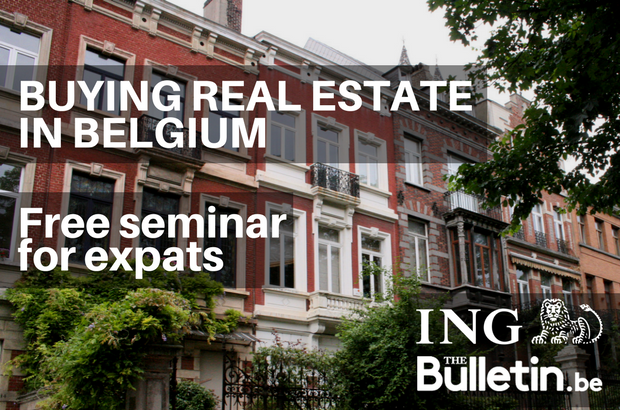- Daily & Weekly newsletters
- Buy & download The Bulletin
- Comment on our articles
Buying a house: Five tips on buying a home in Belgium
Research
Given the high cost of registration tax, you need to own your home for a number of years before you consider selling it. So it’s worth doing your homework on the location and type of property you want to buy. Proximity to schools, facilities, public transport and parks can all play a part. And it’s worth deciding now if you can cope with a renovation project or prefer a property that requires a minimum of work before you can move in.
Money
Before even thinking of making an offer, you need to get the finances sorted. With record low interest rates, it’s worth shopping around for a mortgage loan. Get your calculator out to work out if a fixed (the more popular) or variable repayment rate suits you best, as well as deciding on the repayment period (up to 25 years). Don’t forget to check the conditions of each loan offer, such as obligatory life insurance. Don’t underestimate the costs of removals, refurbishment and running costs. And last but not least, you’ll be expected to have the money ready to pay for the deposit (usually 10% of sale price), registration tax (12.5%; 10% in Flanders) and notary fees. Don’t forget to check out the annual property tax.
Legal
Once you have your finances in place and have found a property that ticks all or most of your boxes, you can make an offer. It’s customary to make an offer lower than the asking price. Avoid showing too much enthusiasm in front of the seller and be ready to negotiate. This offer is a legal commitment to buy and has a set of standard conditions, which may include a clause about the mortgage. They also cover the deposit, which will be lost if you back out. The second stage is a notarised deed that is usually drawn up within four month after the sales agreement. The notary checks the legal status of the property and the previous 30 years of ownership, as well as any environmental or building restrictions.
Surveyor
It’s not usual in Belgium for the condition of the property to be checked by a structural surveyor, so the emphasis is on the buyer to check for potential problems. If you’re going to renovate, it’s worth getting an estimate from a builder. You may well prefer to get an expert or another opinion for an unbiased view before making an offer.
Agents
Real estate agencies can assist your property search and also guide you through the bureaucratic maze, especially if you need translation services. Consider hiring an agent who acts on your behalf rather the seller’s (which is the norm in Belgium). This can cost anything from €250 to €1,000.
Want to find out more?
Sign up for the free seminar Property Today for Expats, organised by the Bulletin and ING. Speakers are: Wout Vermeeren, managing director Domoxim on ‘Discovering the players of your property ownership’; Alexis Lemmerling, notary Berquin on ‘The notary is your best friend’; Dave Deruytter, head of expatriates and non-residents ING Bank on ‘Financing and insuring a property purchase, and what about taxation?’. The event is followed by a reception.
October 5, 18.00-20.30 (registration 17.30)
ING Marnix Auditorium, 1 Rue du Trône, 1000 Brussels
Register here



















